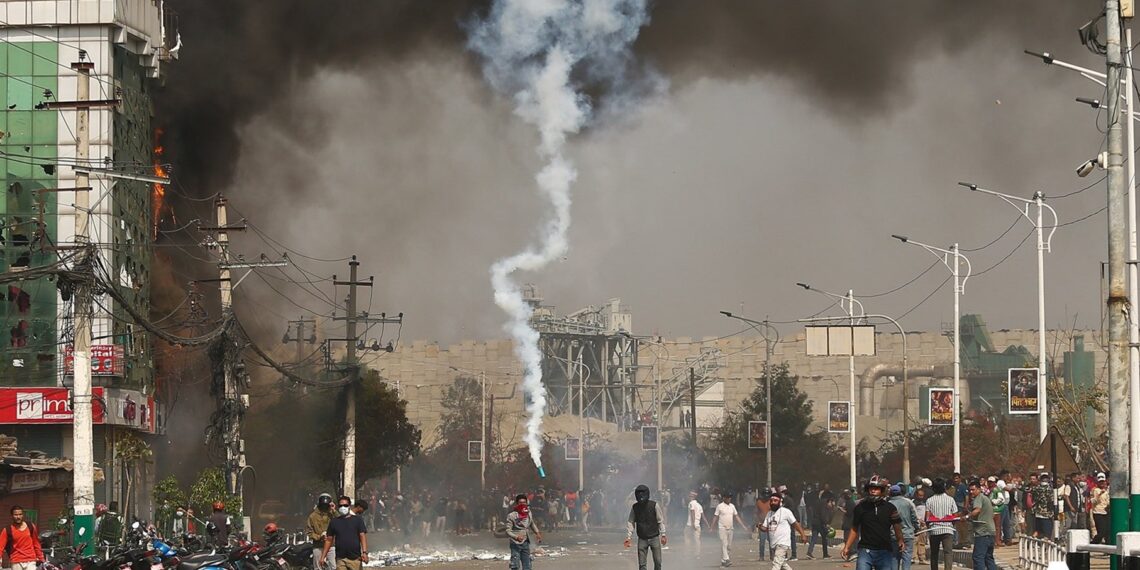Kathmandu: Nepal’s political landscape is heating up as the ruling Nepali Congress and opposition Communist Party of Nepal (Maoist Centre) call for action against former King Gyanendra Shah, holding him accountable for violent pro-monarchy protests.
These demonstrations, which demanded the restoration of Nepal’s abolished monarchy, turned deadly, resulting in two deaths and hundreds of injuries during clashes with security forces.
The Nepali Congress alleged that the former king orchestrated Friday’s unrest, accusing him of inciting targeted attacks on media outlets and public and private properties to sow chaos.
“The violent rallies and attacks suggest an attempt to destabilize the democratic system,” said Congress spokesperson Prakash Sharan Mahat.
The Maoist Centre adopted an even harsher stance, with party chair Pushpa Kamal Dahal asserting, “Former King Gyanendra Shah is behind these pro-monarchy campaigns and should face consequences. The Nepali people will not tolerate such acts.”
Meanwhile, the pro-monarchy Rastriya Prajatantra Party (RPP), led by Rajendra Lingden, warned the government against implicating the former king.
“We challenge the government to arrest him. If they do, we will mobilize our strength and take to the streets,” Lingden declared.
The RPP also demanded the immediate release of two party leaders—Rabindra Mishra and Dhawal Sumsher Rana—arrested for their alleged involvement in the protests.
The protests escalated as demonstrators breached security barricades, prompting police to respond with tear gas and, eventually, live fire to restore order.
ALSO READ: AFSPA extended for six months in parts of Manipur, Nagaland, Arunachal
The unrest left dozens of commercial buildings, media offices, and political establishments vandalized and torched, according to local reports.
Home Minister Ramesh Lekhak condemned the violence during an inspection of affected areas, including Tinkune and Koteshwor.
“In a democratic republic, differences should be resolved through dialogue, not anarchy,” he stated, urging unity against activities that threaten the nation’s democratic system.
Adding to the tension, social media campaigns have emerged demanding the arrest of the former king, further polarizing opinions in the Himalayan nation.















